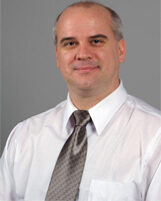RESPONSIBILITIES OF THE CANDIDATE: The objective of this PhD work is to develop completely in simulation and real-time a robust high precision navigation receiver. His work will be supported by the other members of the research team and he will use a part of the research done by the Master’s and trainee students in order to achieve his goals. The main goals of the PhD work are the following ones: – During the first year, the PhD student will focus on the development of various algorithms in order to minimize the errors in the navigation solutions for a stand-alone DGPS and RTK receiver in the desired frequency range. These algorithms will include, among other important aspects, the development of simulation software scenarios with an adapted Kalman filter. This work will include, of course, a very strong theoretical background about the algorithms of GPS errors reduction. He will be very active also in the real-time implementation of the developed algorithms and he will do a detailed evaluation of the obtained performances. He will compare the results obtained in simulation with those obtained with real data. – The second year will be first dedicated to the study of the actual global GEDEX navigation platform and to a global navigation evaluation and modeling in Simulink. The integration of flight dynamics in the Simulink navigation model will be also considered. The PhD student will dedicate the last part of the year to the real-time implementation and integration of the digital signal processing improvement on the real GEDEX navigation platform. He will analyse and compare the performances obtained with real data to those obtained in simulation. – The third year will be dedicated to robustness and reliability issues concerning the global GEDEX navigation platform. He will analyse and investigate the impact of the use of a combined GPS/Galileo receiver for high precision navigation. This research work will include a theoretical analysis and simulation of MEMS based sensors in a hybrid receiver. The PhD student will reach all this goals with the support of the other members of the team. He will centralize the research works done by the trainee and Master’s students.
![]()
